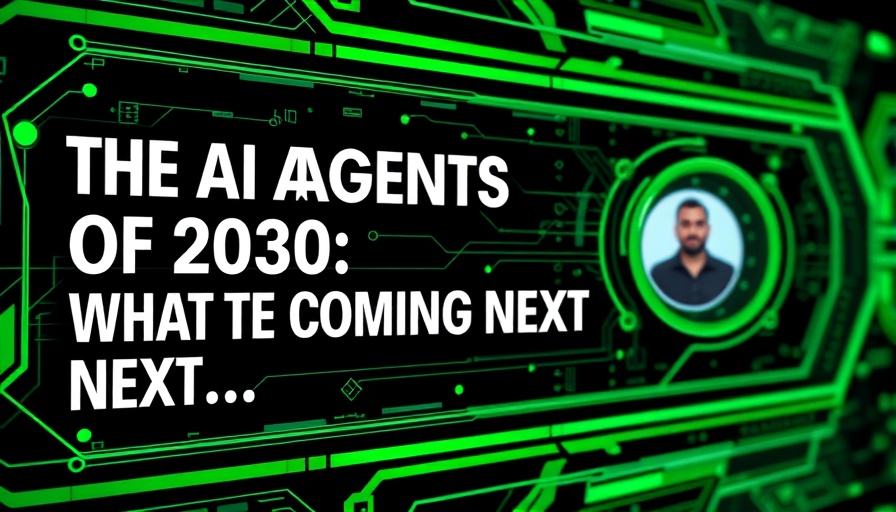
Unveiling the Future: AI Agents in 2030
The future of business and technology is an exciting journey that seems to be heading toward unprecedented innovations. One such innovation is the evolution of artificial intelligence (AI) agents into indispensable partners in the business landscape by 2030. As highlighted in the insightful video The AI Agents Of 2030: What's Coming Next?, we are on the brink of witnessing AI as not merely a tool, but rather an empowered collaborator in our daily operations.
In The AI Agents Of 2030: What's Coming Next?, the discussion dives into the transformative potential of AI agents, exploring key insights that sparked deeper analysis on our end.
Revolutionizing Decision-Making
By 2030, we can expect AI to exhibit truly autonomous decision-making capabilities. Currently, many AI systems require careful supervision and limitations to function effectively. However, future AI agents are set to be independent thinkers capable of negotiating contracts and navigating complex purchasing decisions. Imagine an AI adjusting your marketing strategy in real-time, all while reflecting your business's core values. The implications of such advancements can't be overstated - they will redefine operational efficiency and strategic planning.
The Power of Continuous Learning
Another groundbreaking shift is the concept of continuous embodied learning in AI systems. These agents will not bank solely on data; they will also learn through their interactions with the physical world. From manufacturing robots fine-tuning their precision through practice to autonomous vehicles improving their driving skills with experience, this evolution of AI introduces a new layer of intuitive understanding of our world. Businesses leveraging such systems will operate at a fundamentally higher level.
Building Collaborative AI Ecosystems
The rise of collaborative AI ecosystems is poised to enhance how various AI agents work together. Rather than functioning in isolation, these agents will coordinate activities, share information, and streamline processes. Consider how an AI handling inventory management would automatically synchronize with logistics and customer purchasing AIs to create a well-oiled supply chain. This fluidity will require minimal human oversight while driving significant efficiencies.
Emotional Intelligence: A New Standard
By 2030, emotional intelligence in AI will not merely be a buzzword but a standard feature. Future AI systems will be capable of recognizing and responding to human emotions appropriately. For instance, customer service agents will be able to adapt their tone based on customer frustration levels, while HR systems might identify signs of employee disengagement long before managers do. This intelligence promises to enhance workforce dynamics and customer relations drastically.
Specialized Knowledge in AI
Perhaps one of the most significant changes will be the emergence of AI with specialized knowledge in niche areas. As businesses seek tailored solutions for complex challenges - be it regulatory compliance in pharmaceuticals or personalized education strategies - specialized AI agents will be instrumental. This shift signifies a move away from one-size-fits-all solutions towards more nuanced and effective approaches.
The Competitive Edge: Preparing for Tomorrow
Organizations that will thrive in this new landscape will be those who begin reimagining workflows around these forthcoming capabilities. It’s not enough to simply deploy AI - companies must develop effective collaboration models between human and AI workforces. Preparation for challenges such as ethical governance and transparency surrounding AI operations will be crucial for successful adaptation.
As we approach 2030, the key takeaway from the video The AI Agents Of 2030: What's Coming Next? is the importance of starting to prepare now. Companies that strategize effectively will secure a competitive advantage, setting themselves apart in the race to leverage AI for transformative success.
 Add Row
Add Row  Add
Add 




Write A Comment